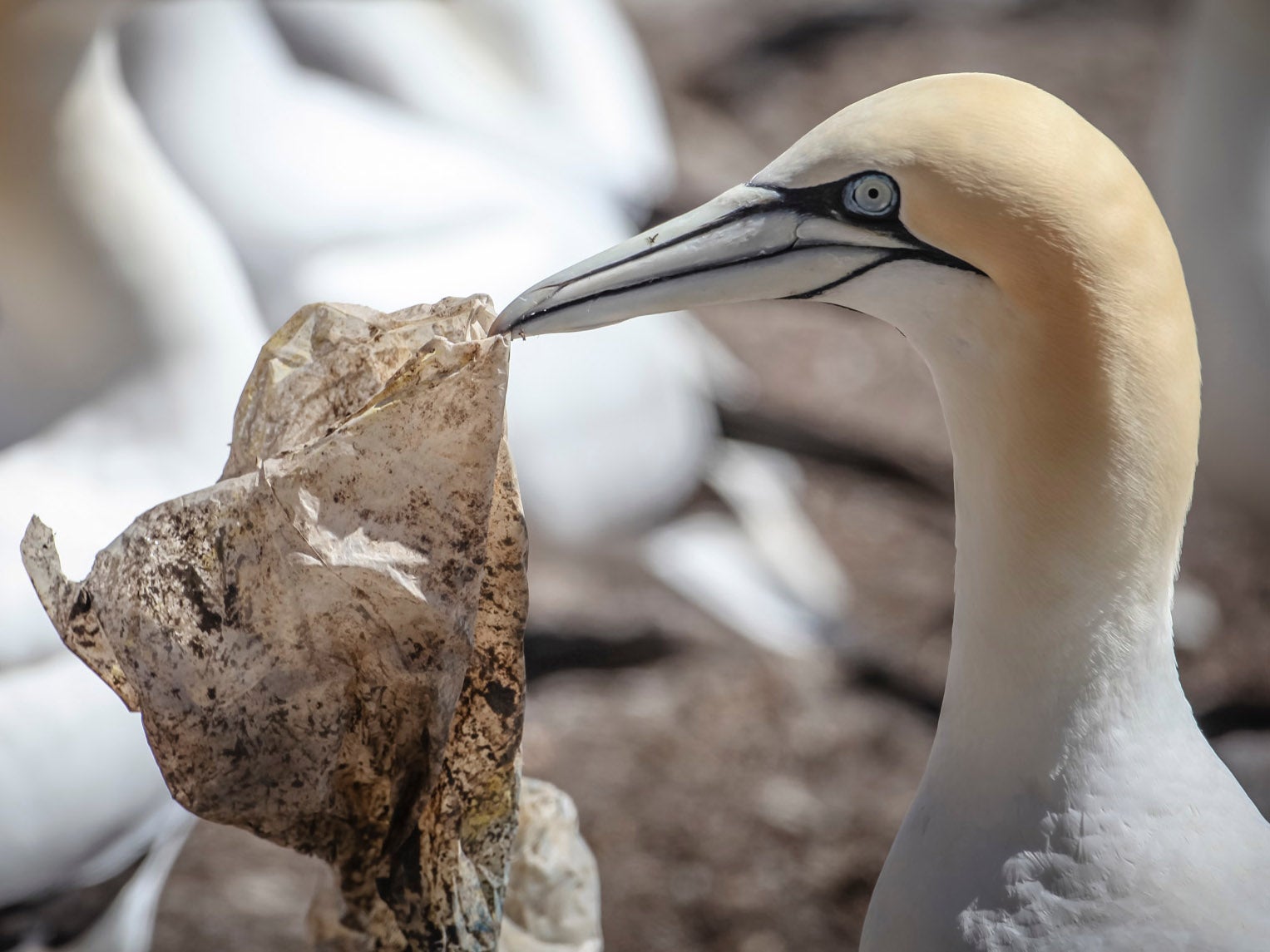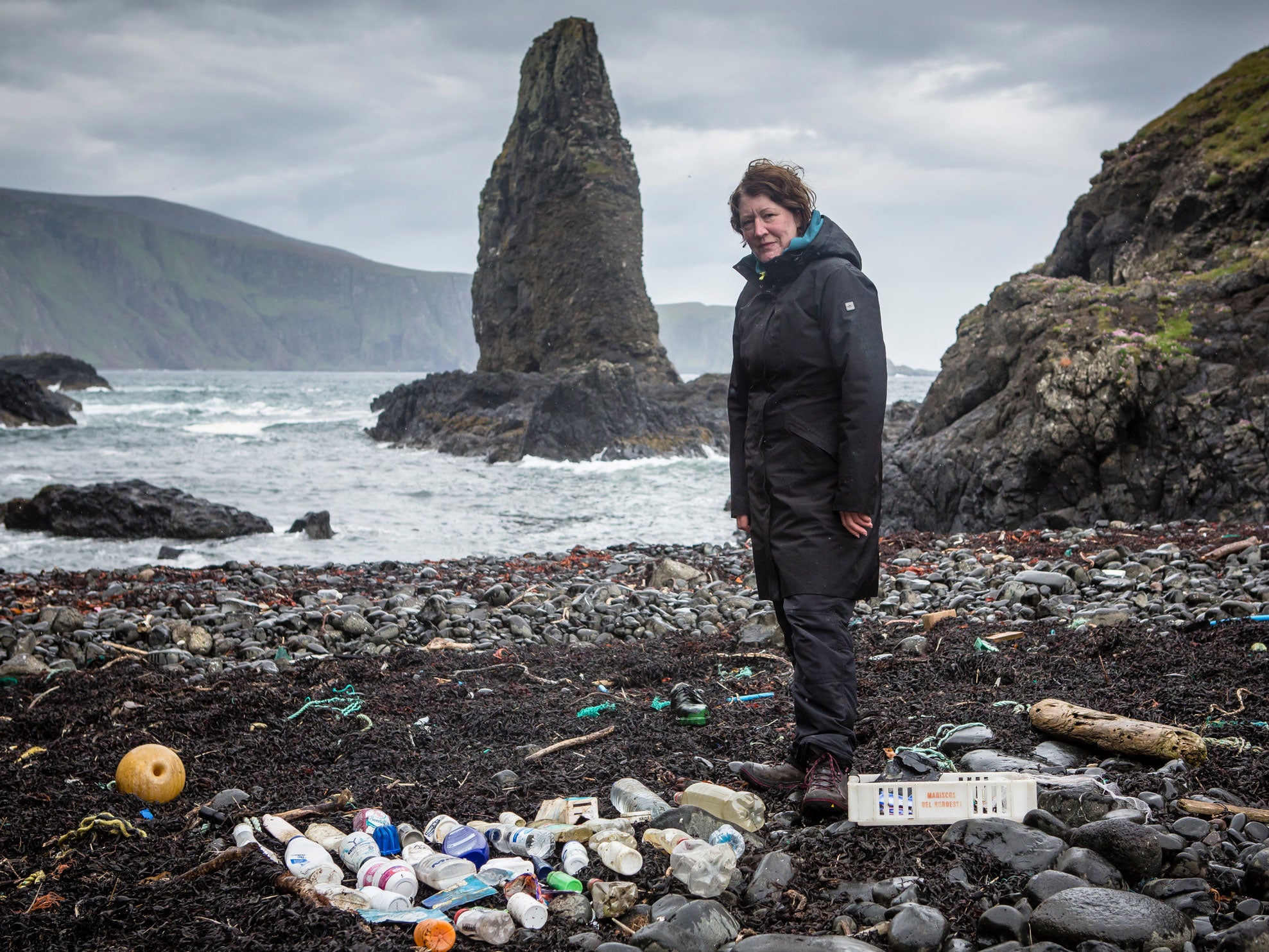Plastic pollution threat to wildlife and Scotland's most beautiful beaches
Greenpeace to deliver petition to Scottish Government calling for bottle deposit scheme
Your support helps us to tell the story
From reproductive rights to climate change to Big Tech, The Independent is on the ground when the story is developing. Whether it's investigating the financials of Elon Musk's pro-Trump PAC or producing our latest documentary, 'The A Word', which shines a light on the American women fighting for reproductive rights, we know how important it is to parse out the facts from the messaging.
At such a critical moment in US history, we need reporters on the ground. Your donation allows us to keep sending journalists to speak to both sides of the story.
The Independent is trusted by Americans across the entire political spectrum. And unlike many other quality news outlets, we choose not to lock Americans out of our reporting and analysis with paywalls. We believe quality journalism should be available to everyone, paid for by those who can afford it.
Your support makes all the difference.It was a sea journey that took in some of Scotland’s most beautiful and remote places – from the Bass Rock to the Isle of Rum and the Shiant Isles in the Outer Hebrides.
But plastic waste – bottles, bags, packaging and other assorted items – was found at every single one of more than 30 beaches on the trip by the Greenpeace boat, Beluga II.
Waters used by basking sharks – giant, gentle filter feeders – seals, puffins, whales and other iconic wildlife were also found to be littered with tiny pieces of microplastic.

Now Greenpeace is calling for the Scottish Government to introduce new legislation to require a deposit scheme for plastic bottles.
This would mean people would pay a little extra for a bottle of water, for example, but then receive the same amount back when it was returned for recycling. Similar schemes elsewhere in the world have helped to increase collection rates to 95 per cent.
In addition to the dangers posed by plastic to wildlife, the United Nations has warned it also poses a growing threat to human health with more than a quarter of fish in markets in California and Indonesia found to contain some.
Plastic can be toxic itself, but also acts like a magnet, attracting other dangerous chemicals and concentrating them. It gradually breaks down and can become so small that it is absorbed through the stomach lining, ending up inside body tissues.
Tisha Brown, an oceans campaigner at Greenpeace UK, said: “It cannot be right that our beaches, seas and the stunning wildlife they are home to should become the final dumping ground for throwaway plastic bottles and other plastic trash.
“With a truckload of plastic entering the ocean every minute, we need urgent action from governments and from major soft drinks companies which produce billions of single-use plastic bottles every year, like Coca-Cola, to stop the flow of plastic into the sea.”
On Tuesday, Greenpeace will deliver a petition with more than 25,000 signatures to Scotland’s Environment Secretary, Roseanna Cunningham, calling a deposit-return bottle scheme.
A print of an artwork made out of waste plastic by award-winning artist Mandy Barker and small commemorative bottles filled with tiny pieces of ocean plastic collected from the sea will also be handed in.
Beluga II started its journey in the Firth of Forth, taking in the Bass Rock and Isle of May before travelling up the East Coast and passing through the Caledonian Canal onto the West Coast.

From there it travelled to Rum and Eigg, the west coast of Skye, the Shiant Isles and then Lewis.
Further details about the plastic surveys of the beaches and sea will be produced later this year after analysis by Greenpeace scientists.
Greenpeace is running a campaign in the hope of cutting the estimated 12 million tonnes of plastic that get into the oceans every year.
They are urging people to sign a pledge to that effect and also to stop using single-use plastic bottles by carrying a reusable one and help spread the word about the damage being done.
A Scottish Government spokesperson said: “Marine litter is a serious issue which adversely affects the health of Scotland’s seas and the world’s oceans. It impacts on our wildlife and damages our marine environment, on which many livelihoods depend.
“We are working with the international Ospar Commission to reduce substantially the amount of litter entering the marine and coastal environment.
“The potential benefits of a deposit return scheme are currently being assessed. We are also developing legislation to ban the sale and manufacture of personal care products containing plastic microbeads.”

Join our commenting forum
Join thought-provoking conversations, follow other Independent readers and see their replies
Comments